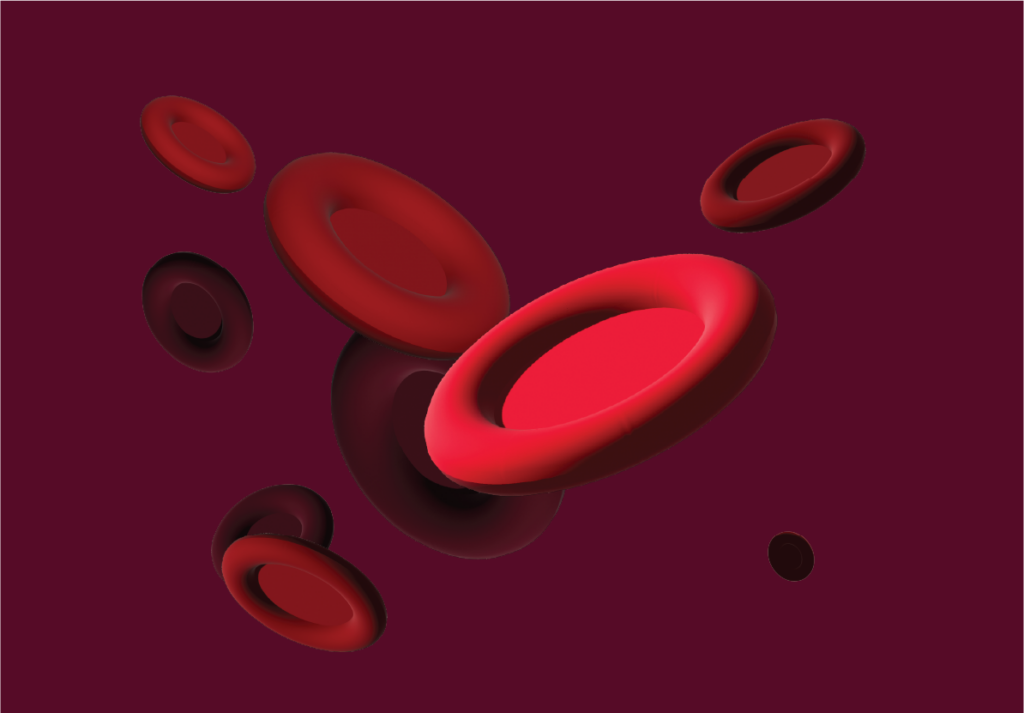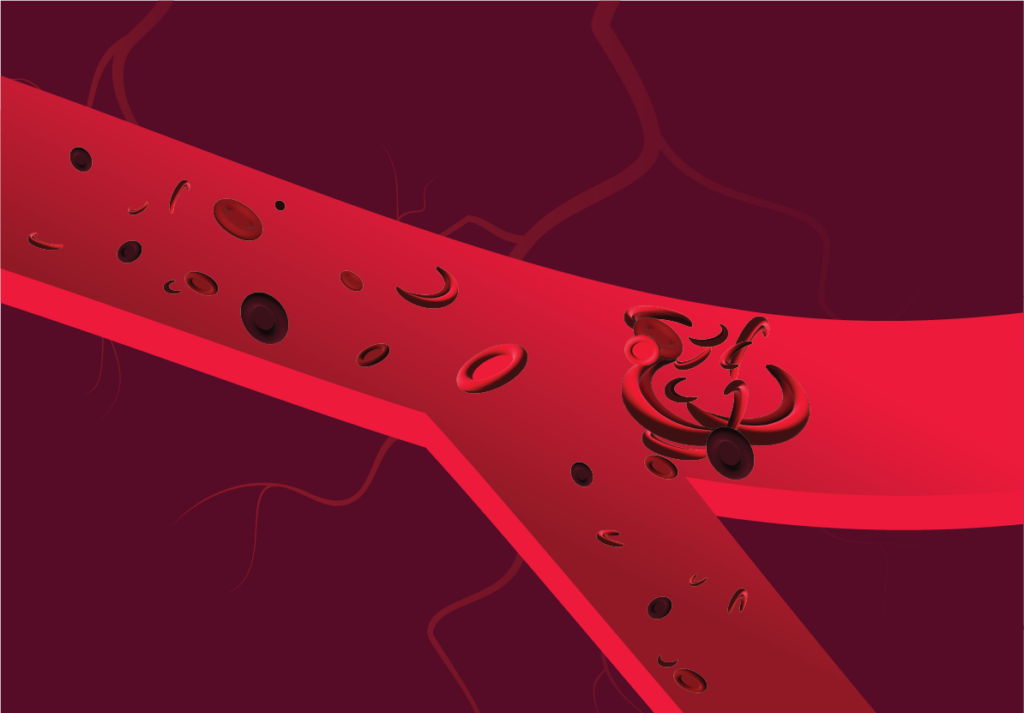Sickle cell disorder (SCD) is a genetically inherited red blood cell disorder. That means it is passed down from a parent’s genes. SCD changes the shape of red blood cells, from a healthy round shape to the cell taking on a crescent or sickle shape. It is a lifelong blood disorder.
Haemoglobin is the protein in red blood cells that carries oxygen to all parts of the body. The mutation in the gene when you have SCD, causes the cells to become stiff, sticky and they can clump together. This can result in a body’s tissues and organs not getting enough oxygen as the sickle cells get stuck and block blood flow. The cells do not live as long as healthy blood cells, resulting in constant shortage of red blood cells.

Normal Red Blood Cells
Sickle Cell disorder (SCD) is an inherited blood disorder that affects red blood cells. Normal red blood cells are round and flexible, which lets them travel through small blood vessels to deliver oxygen to all parts of the body.
Sickle Red blood cells
SCD causes red blood cells to form into a crescent shape, like a sickle, which is where the disorder gets its name.


Sickle Cells cause blockage in Blood vessels
The sickle-shaped red blood cells break apark easily, clump together, and stick to the walls of blood vessels, blocking the flow of blood, which can cause a range of serious health issues.
People who have sickle cell disorder can experience a range of complications, ranging in severity. The most common is acute painful crisis, also known as vasculo-occlusive crisis. This can last for days or weeks. Others with SCD may experience fatigue, anaemia, and increased infection susceptibility2 dark urine, yellow eyes, stunted growth, stroke.
Find out more about the symptoms of sickle cell disorder
Sickle Cell can affect anyone and is a condition which affects millions of people worldwide, particularly those of African, Mediterranean, Middle Eastern, and South Asian descent. It is the fastest growing and most common haemoglobinopathy in the UK1.
Sickle Cell is a complex disorder that requires high-quality, comprehensive care. Complications with SCD can begin in early childhood and are associated with shortened life expectancy. Early intervention and treatment of SCD have shown potential to modify the course of this disorder, reduce symptoms and events, prevent long-term organ damage, and extend life expectancy.
- 1 Sickle Cell Society. Standards for the Clinical care of adults with sickle cell disorder in the UK. [pdf] London: Sickle Cell Society, 2018. Available at: download pdf
Understanding Sickle cell disorder: Causes, symptoms, and treatment options – PubMed (nih.gov)
